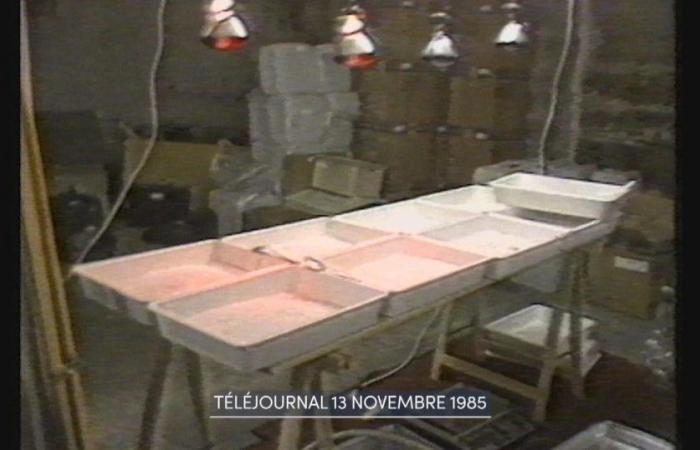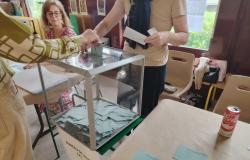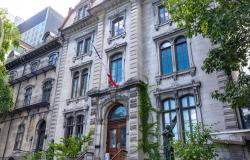The inhabitants of Paccots have still not recovered: in the 1980s, a criminal gang engaged in the international heroin trade from a chalet in the village, transformed into a clandestine laboratory. With its dismantling in 1985, Switzerland realized that it was not spared from drug trafficking organized on a global scale.
On the evening of November 11, 1985, the Friborg police stormed a chalet in the peaceful village of Paccots. Called “L’Armailli”, this building with its most ordinary appearance conceals a clandestine laboratory for transforming morphine base from Lebanon into heroin intended for the American market.
The agents discovered 10 kg of almost pure drugs. For the Swiss narcotics, this was a record haul. In total, some 300 kilos of narcotics left this factory. Two days later, the TSR news program praised a “great bust carried out with the French and American police”. The operation “allowed the dismantling of the Benevento clan’s enormous heroin network in the United States”.
Traffickers with international stature
In addition to this historic seizure, law enforcement arrested six traffickers across Switzerland. Among them are four figures of French organized crime, some members of the French Connection, a heroin trafficking network between the United States and France.
“None of the police officers present expected to arrest people of this calibre,” Michel Genoud, a former inspector of the Fribourg narcotics squad and key figure in the investigation, told Couleurs Locales.
>> Listen to the treatment of the case in the Evening Journal of the time:
These gangsters are Philippe Wiesgrill, a chemist with a worldwide reputation, Charles Altiéri, a henchman who climbed the ranks of organized crime in Marseille, and Jean Guy, a boss from Nîmes. But it is a fourth man who will attract attention: François Scapula.
“He has an independent personality and is linked to the French Connection in Marseille to make money. But apparently, he is not at all a gang man,” describes independent journalist Jean-Brice Willemin.
>> Also read on the subject: From heroin to Paccots
Police informant
In this matter, he plays the role of brain, but also of balance. He is presented as the one who sold his accomplice, Charles Altiéri, for the assassination of investigating judge Pierre Michel, an anti-mafia magistrate killed in Marseille a few years earlier.
François Scapula will also provide information on the American Benevento clan. “He considered that it might be useful to put himself in a repentant status,” explains Jean-Brice Willemin. Charles Altiéri, for his part, will confess his participation in the murder of Judge Michel during the Fribourg investigation, before retracting.
On November 11, the police also arrested two lesser men from Fribourg: Oscar H., the courier, and Marcel Z., then in his sixties, who had organized the settlement in the village of Préalpes. The gang had chosen to settle in Les Paccots because of the tranquility that reigns there.
A trial under high surveillance
The trial – unusual – opened on October 20, 1987. The criminal court was set up for the occasion in the Poya military barracks, in Fribourg, protected by an important security system. The authorities fear reprisals from organized crime.
François Scapula, Philippe Wiesgrill and Charles Altiéri will be sentenced to 20 years in prison, the others will receive a lighter sentence. The members of the “Dzodzet Connection” will still be talked about for several escapes.
>> Images of the verdict of the resounding trial of the Paccots gang:
Shadow zone
The most resounding of these escapes, initially kept secret, was made public in 2001, a year after the events. The daily La Liberté reports the escape of François Scapula, who feared extradition to France. The man, who had provided tips to the police on both sides of the Atlantic, was afraid of being recognized – and liquidated – by the community.
Of the Paccots gang, only the one we now nickname “Scapu the Libra” remains untraceable today. Was he, in reality, extradited to the United States to live under protection because of his collaboration with the justice system? Does he rather live on the run? Where did he die? The mystery remains.
TV topic: Hannah Schlaepfer
Adaptation web: Antoine Michel






